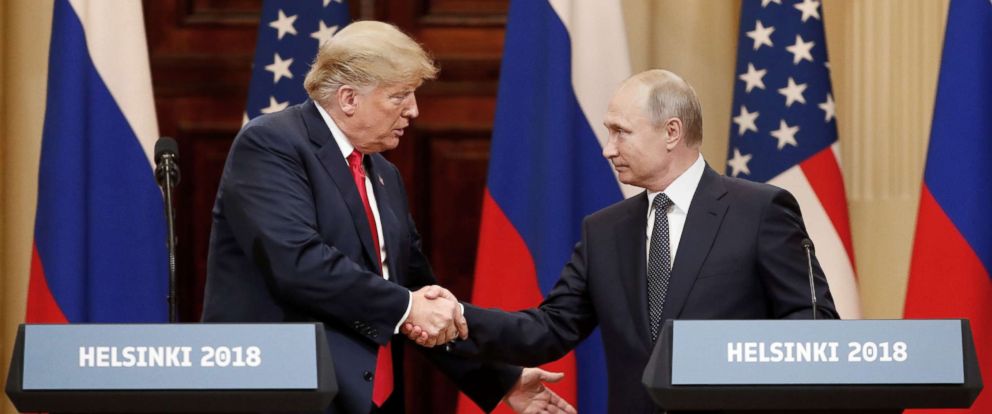Global Times (17 July 2018) – The joint press conference after the summit between US President Donald Trump and Russian President Vladimir Putin in Helsinki set US public opinion ablaze. Some US lawmakers and mainstream media accused Trump of being “disgraceful” and “disgusting,” some even called his behavior “nothing short of treasonous.”
These establishments cannot stand Trump confusing US enemies and friends. They contrasted Trump’s attacks on his allies during the NATO Summit and his British tour with his compliment to Putin. “Our relationship with Russia has never been worse thanks to many years of US foolishness and stupidity,” Trump criticized. This made the establishments particularly angry, because the US society has long believed that it is Moscow’s evil that led to poor US-Russian ties in the first place.
Previously, US mainstream public opinion has rarely condemned or abused their sitting president like today. It shows that Trump is facing tremendous difficulties to improve relations with Russia.
Trump voiced his appreciation of Putin during his election campaign. His attitude toward Putin has not changed even during the ongoing investigation into the Russiagate allegations. There seems to be no obstacles in his personal relationship with Putin. However, their personal friendship cannot turn into a positive asset of US-Russian ties. This has become a special case in major power relations.
The US-Russian relationship can hardly be significantly improved. The fundamental reason is that Washington is still immersed in its hegemonic mindset and is not willing to replace such an attitude with treating all on an equal footing.
Trump’s “America First” reinforced Americans’ consciousness of the privileged and he has become a new practitioner of US hegemonism.
As a matter of fact, improving the bilateral relationship between Washington and Moscow will be beneficial to not only the two sides, but also the promotion of global strategic stability.
No country in the world really wants to fight against the US. Even hostile countries in the eyes of Washington are willing to eliminate mutual hostility and establish friendly relations with the US. When they have no alternative but to confront Washington, it must be a forced choice in the face of US unrelenting hegemonic policies.
Trump’s foreign policy is messy. He wants to win more support domestically. He firmly believes in his own instincts while despising the fundamental rules of international relations. Moreover, he likes to take risks. His diplomacy is often populist.
Current US foreign policy is not guaranteed to become a part of its long-term strategy. Policy changes in many aspects will likely be temporary.
When it comes to the US-Russian relationship, the US itself is divided. It is very difficult for non-Western countries to build good ties with Washington. There are simply too many, too powerful forces that are against it. It is important for Beijing and Moscow to take note.


